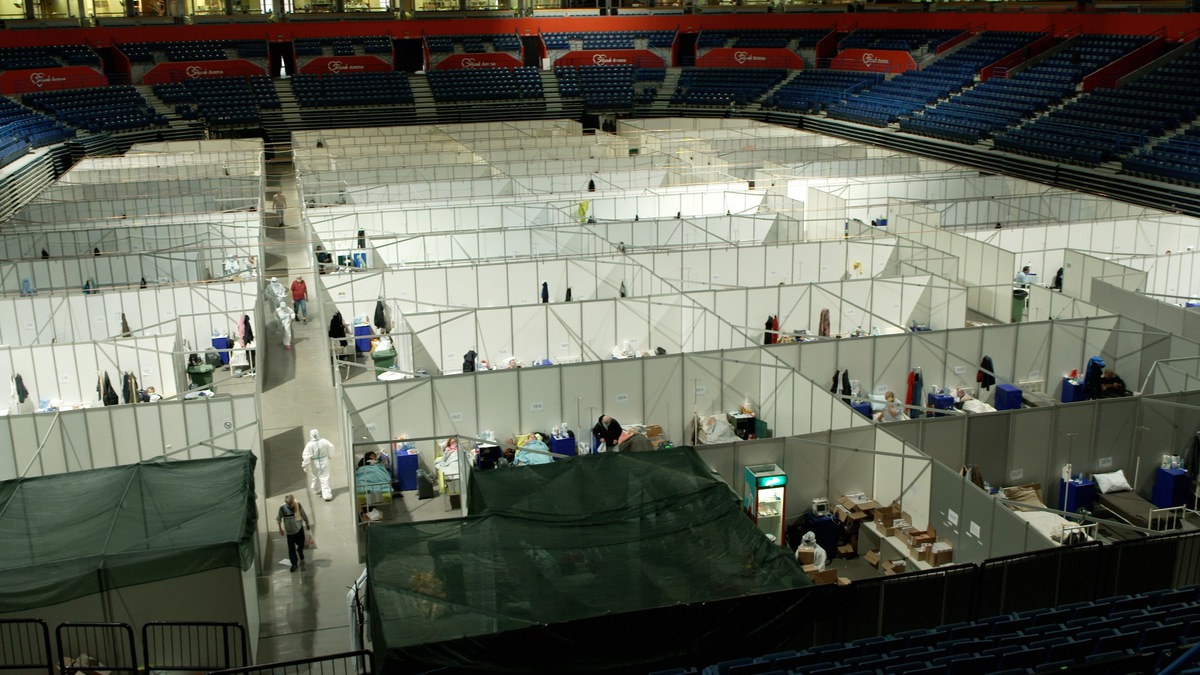02:38

The Balkans has quietly become the European epicenter of the second wave of COVID-19, with Serbia's healthcare system on the verge of collapse.
Two new temporary hospitals are being hastily constructed in the capital Belgrade, as Serb authorities struggle to contain the crisis.
Serbia is now officially among Europe's top three countries for infection rates per 100,000 people in the past two weeks.
In the past 24 hours, the coronavirus was confirmed in 7,606 more people, with 51 deaths and an additional 243 patients on ventilators.

With every hospital bed in Belgrade full, patients are being transported across the country.
One of the new hospitals, on Belgrade's outskirts, should be ready to take COVID-19 patients in the first days of December.
Serbia's President Aleksandar Vucic visited the hospital and told journalists there his administration was trying to acquire "significant quantities" of the two vaccines about to be launched in Europe.
"We are a part of Covax, the EU plan, so if they purchase the Pfizer vaccine, we'll buy it too without asking for a price," said Vucic. "If they buy Moderna, we'll buy it too."
The president said his country is under huge financial pressure. "It is almost unbearable."
Twenty kilometers away, in downtown Belgrade, is another makeshift hospital built to cope with the virus. It's located inside the Stark Arena – usually a venue for sports and concerts – and is run by the Serbian military.
"We have 360 patients here and our capacity is 95 to 100 percent full every day, and daily we take 50 to 80 new patients," said Predrag Bogdanovic, the hospital's chief medical coordinator.
Last month, Serbia's leading religious figure, Patriarch Irinej, bishop of the Serbian Orthodox Church in Montenegro, died with COVID-19.
Thousands attended Irinej's funeral, unwittingly taking part in what has been called a "super-spreader event," leading to many infections.
Since the beginning of the pandemic, the country of 8.7 million people has recorded 140,608 confirmed cases of COVID-19, with 1,315 deaths.
Until a few days ago, nightclubs and shopping malls remained open, helping spread the virus further.
Experts say the sheer scale of the numbers infected in Serbia means the virus is now almost out of control. Building hospitals is helping, but many fear it won't be enough.

